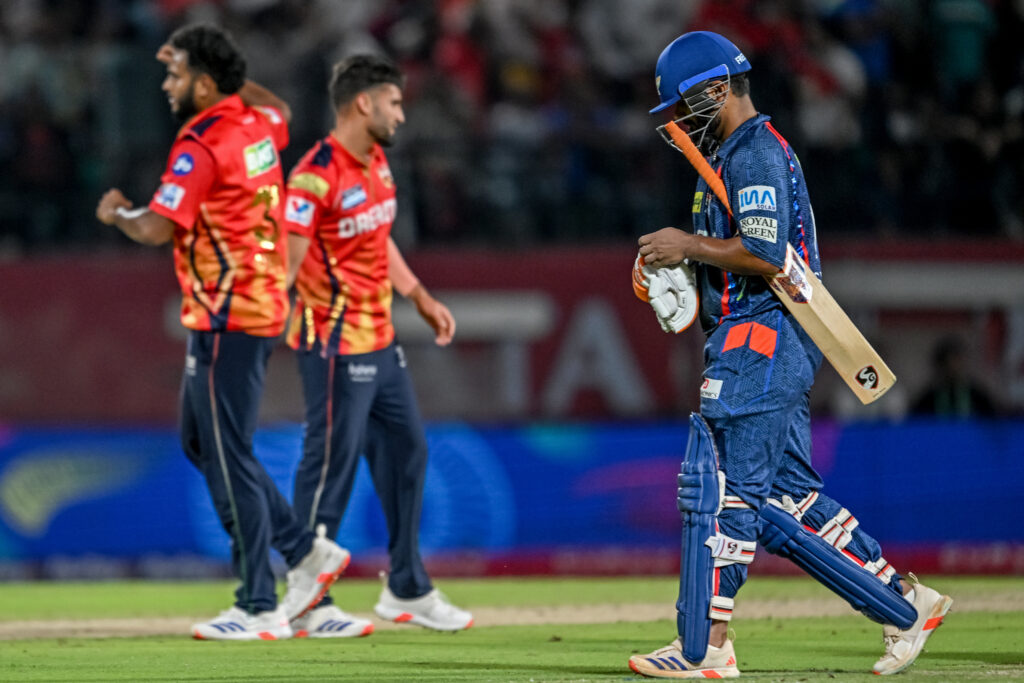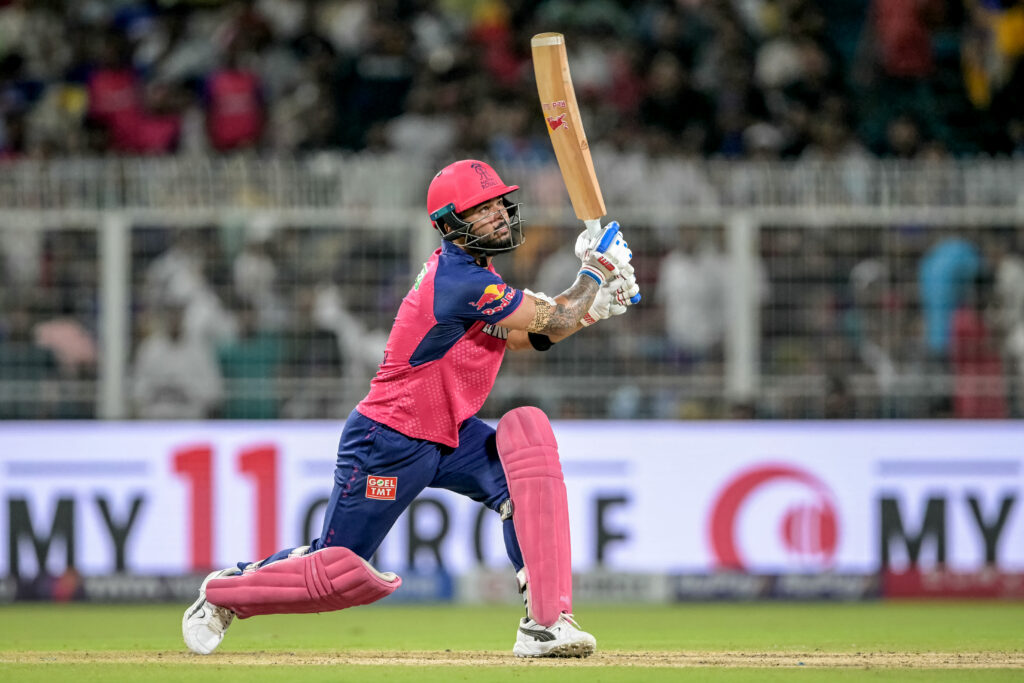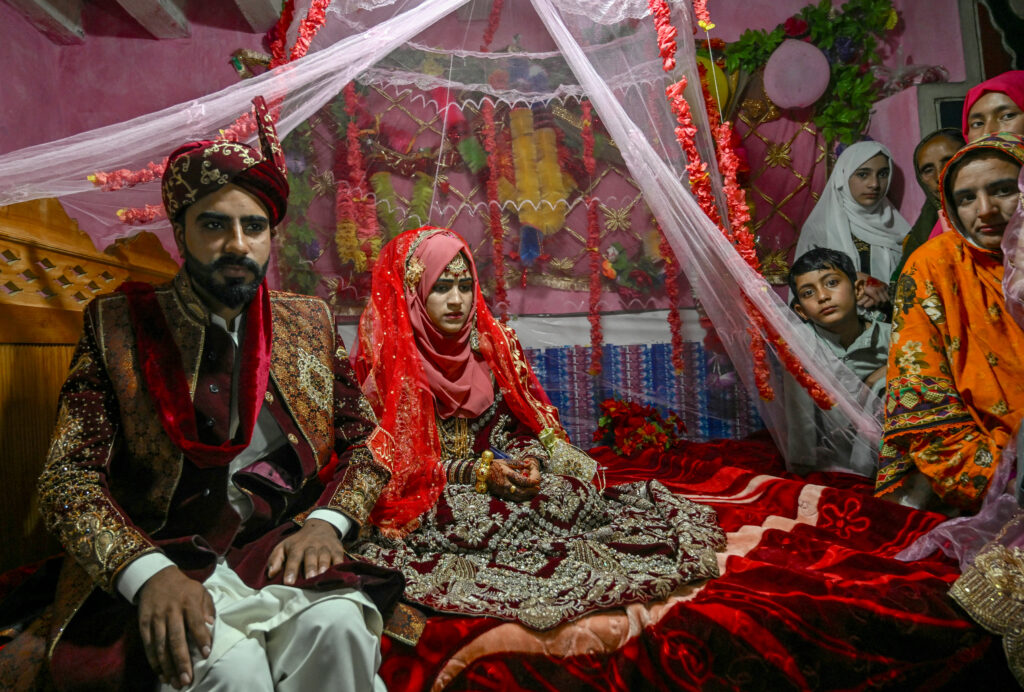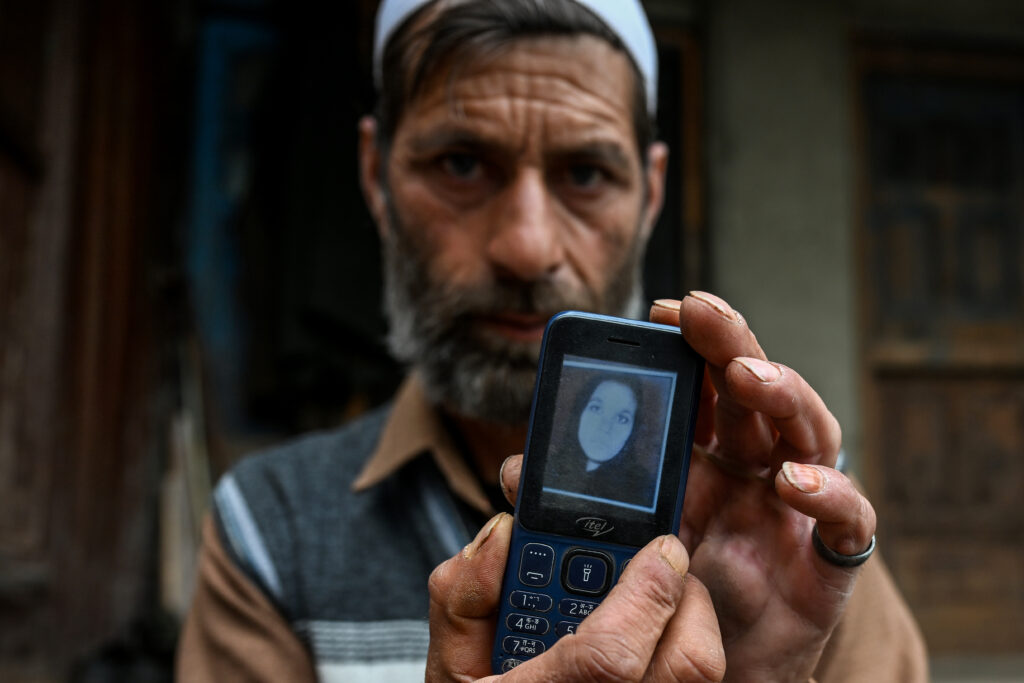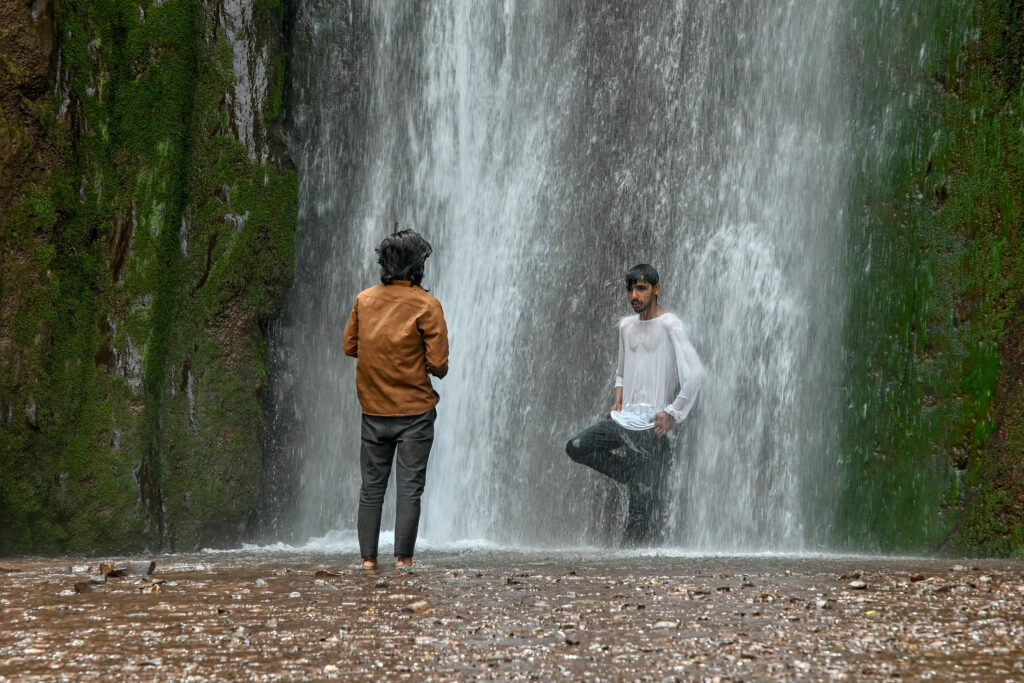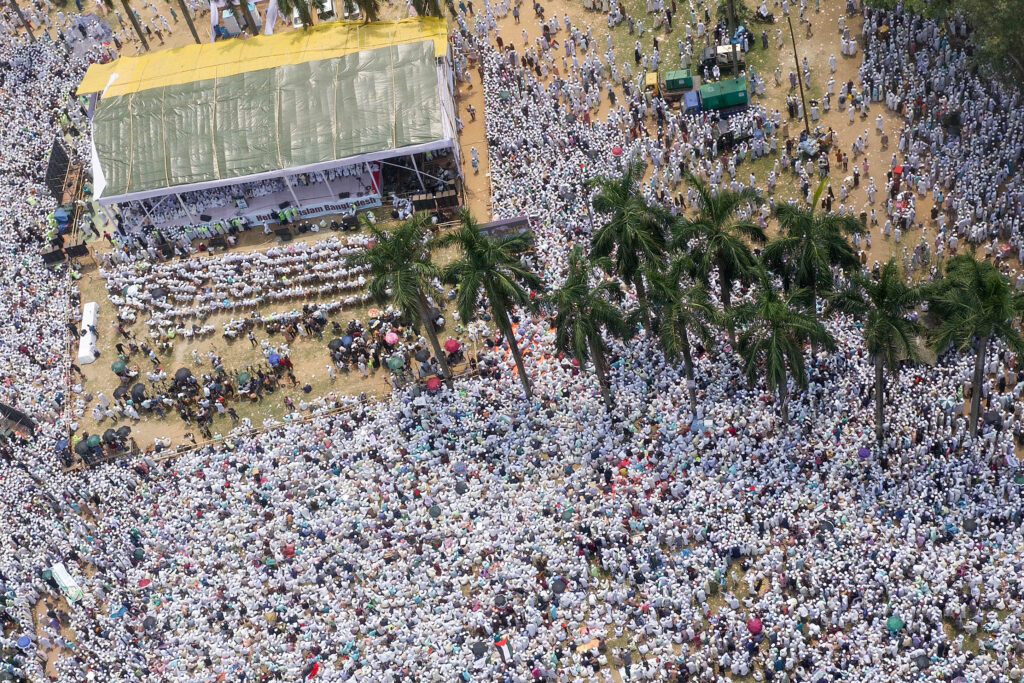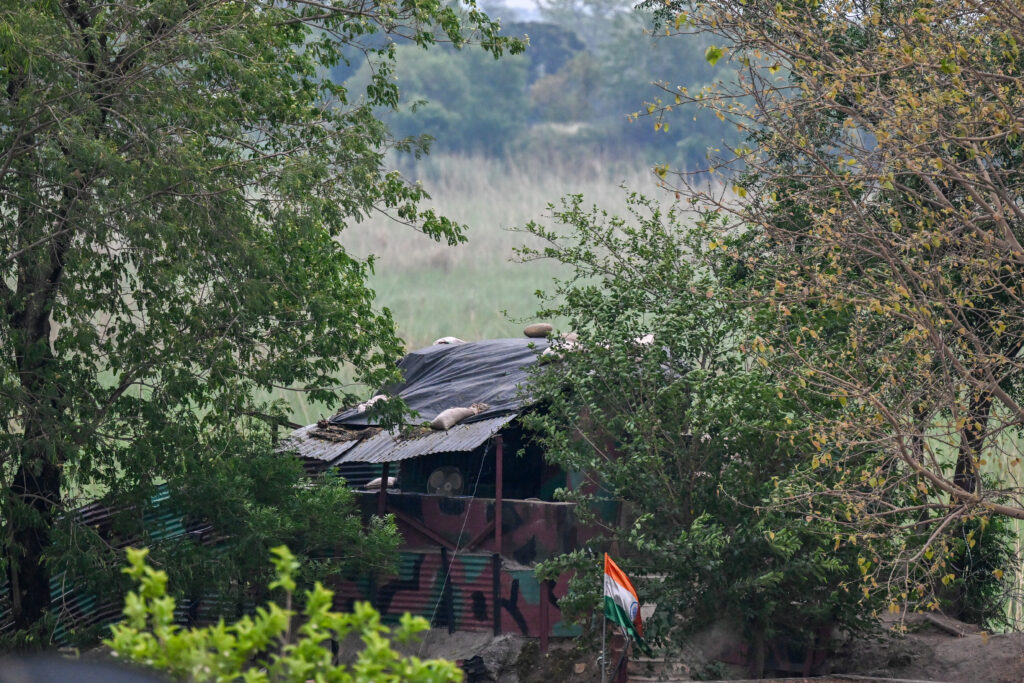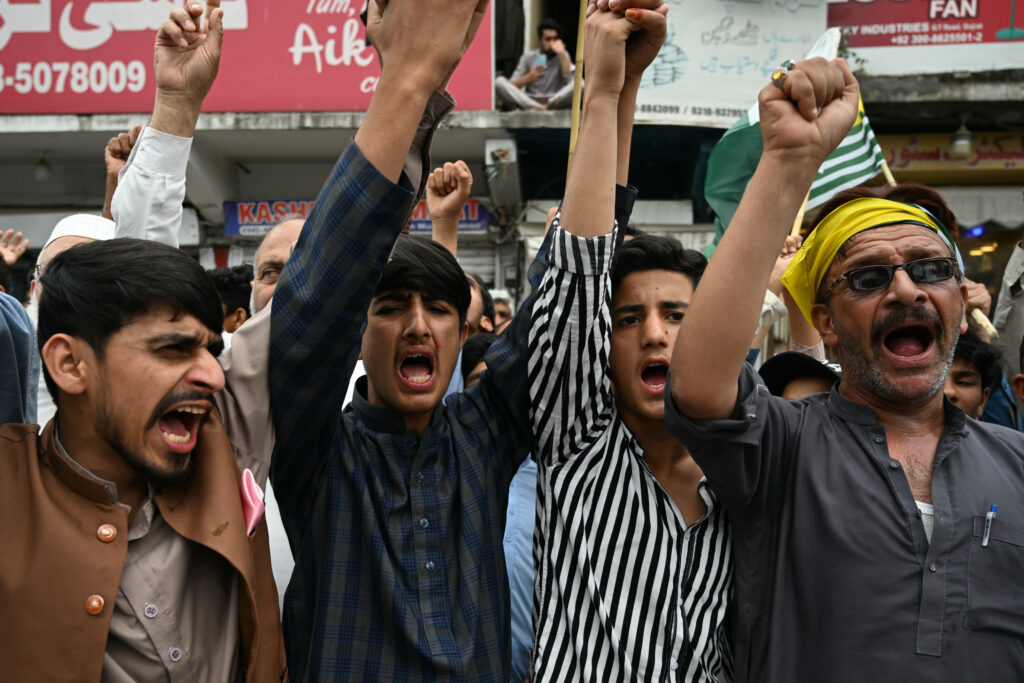On India’s heavily fortified border with arch-rival Pakistan, residents of farming villages have sent families back from the frontier, recalling the terror of the last major conflict between the rival armies.Those who remain in the farming settlement of Sainth, home to some 1,500 people along the banks of the broad Chenab river, stare across the natural division between the nuclear-armed rivals fearing the future.”Our people can’t plan too far ahead”, said Sukhdev Kumar, 60, the village’s elected headman. “Most villagers here don’t invest beyond a very basic house,” he added.”For who knows when a misdirected shell may fall from the other side and ruin everything?”Relations between the nuclear-armed neighbours have plummeted after India accused Pakistan of backing the worst attack on civilians in Indian-administered Kashmir in years.Indian police have issued wanted posters for three men accused of carrying out the April 22 attack at Pahalgam — two Pakistanis and an Indian — who they say are members of the Pakistan-based Lashkar-e-Taiba group, a UN-designated terrorist organisation.Islamabad has rejected the charge of aiding gunmen who killed 26 people, with both countries since exchanging diplomatic barbs including expelling each other’s citizens.India’s army said Saturday its troops had exchanged gunfire with Pakistani soldiers overnight along the de facto border with contested Kashmir — which it says has taken place every night since April 24.- ‘Living in fear’ -Muslim-majority Kashmir has been divided between India and Pakistan since their independence from British rule in 1947, with both governing part of the disputed territory separately and claiming it in its entirety.Sainth, with its open and lush green fields, is in the Hindu-majority part of Indian-run Jammu and Kashmir.Security is omnipresent.Large military camps dot the main road, with watchtowers among thick bushes. Kumar said most families had saved up for a home “elsewhere as a backup”, saying that only around a third of those with fields remained in the village.”Most others have moved”, he said.The region was hit hard during the last major conflict with Pakistan, when the two sides clashed in 1999 in the high-altitude Himalayan mountains further north at Kargil.Vikram Singh, 40, who runs a local school, was a teenager at the time.He remembers the “intense mortar shelling” that flew over their heads in the village — with some exploding close by.”It was tense then, and it is tense now,” Singh told AFP. “There is a lot to worry since the attack at Pahalgam… The children are scared, the elderly are scared — everyone is living in fear”.International pressure has been piled on both New Delhi and Islamabad to settle their differences through talks.The United States has called for leaders to “de-escalate tensions” , neighbouring China urged “restraint”, with the European Union warning Friday that the situation was “alarming.On the ground, Singh seemed resigned that there would be some fighting.”At times, we feel that war must break out now because, for us, it is already an everyday reality”, he said. “We anyways live under the constant threat of shelling, so, maybe if it happens, we’d get to live peacefully for a decade or two afterwards”.- ‘Checking our bunkers’ -There has been a flurry of activity in Trewa, another small frontier village in Jammu.”So far, the situation is calm — the last cross-border firing episode was in 2023″, said Balbir Kaur, 36, the former village head.But the villagers are preparing, clearing out concrete shelters ready for use, just in case.”There were several casualties due to mortar shelling from Pakistan in the past”, she said.”We’ve spent the last few days checking our bunkers, conducting drills, and going over our emergency protocols, in case the situation worsens,” she added.Kaur said she backed New Delhi’s stand, with Prime Minister Narendra Modi vowing “to punish every terrorist and their backer” and to “pursue them to the ends of the Earth”.Dwarka Das, 65, a farmer and the head of a seven-member family, has lived through multiple India-Pakistan conflicts. “We’re used to such a situation,” Das said. “During the earlier conflicts, we fled to school shelters and nearby cities. It won’t be any different for us now”.
